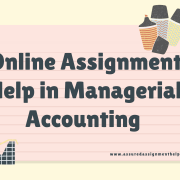Trimester
2015 Generic Copy please refer to Moodle or request the appropriate trimester from the Industry Training Department
Learning Outcome/s
Demonstrate an understanding that academic learning is necessary for career success but that complementary
practical understanding is also critical
Demonstrate proficiency in communication and practical generic workplace skills
Demonstrate and link these competencies with the overall course aim
Demonstrate an awareness of workplace culture and employer expectations
Demonstrate the ability to use the work experience to reflect on and develop insights from their industry training
experience
Assessment type Individual Written
Due dates
Critical Analysis 1 – Week 5, Critical Analysis 2 – Week 10, Please note that 2 critical Analysis need to be submitted,
one on each of the due dates
Format / Layout of Assessment (details of what to include)
Critical incident analysis is a type of reflective exercise that allows you explore issues or incidents that occurred at work that provide learning insights for you about work, about the management of organizations and people or
about your own values and attitudes.
Critical incident analysis help you look beyond the experience of the incident to the meaning of the incident. This is a form of reflection-on-action. Another goal is to help you develop your ability to reflect on these incidents as they happen, or reflection-in-action. Using critical incidents can help you adjust your lesson and strategies for future teaching cycles, or reflection-for-action.
A critical incident is an incident at your workplace that has significance for you. It can be an event that made you stop and think, or one that raised questions about your organisation, its people or processes, or about your interaction with the organisation. It may have made you question an aspect of your beliefs, values, attitude or behaviour. It is an incident which in some way has had a significant impact on your personal and professional
learning. This could include any of the following situations:
- When you felt you had done something well…
- When you made the wrong decision…
- When something went better than expected…
- When you lacked confidence…
- When you made a mistake…
- When you really enjoyed working with someone/ a group…
- When you had a feeling of pressure…
- When you found it difficult to accept or value a service user(s)…
- When you realised you did not know enough…
- When you felt unsupported…
- When you were worried about a service user(s)…
When you took a risk and it paid/ didn’t pay off…
Assessment instructions
Choose a critical incident and analyse by using the framework explained below.
Ask yourself the following core questions and choose those sections that are most relevant to each critical incident. You need not – and indeed cannot – answer all the questions in 750 words.
1. Account of the incident
- What happened, where and when; who was involved?
- What was your role/ involvement in the incident?
- What was the context of this incident, e.g. previous involvement of yourself or other from this agency with this client/ client group?
- What was the purpose and focus of your contact/intervention at this point?
2. Initial responses to the incident
- What were your thoughts and feelings at the time of this incident?
- What were the responses of other key individuals to this incident? If not known, what do you think these
might have been?
3. Issues and dilemmas highlighted by this incident
- What practice dilemmas were identified as a result of this incident?
- What are the values and ethical issues which are highlighted by this incident?
- Are there implications for inter-disciplinary and/ or inter-agency collaborations which you have identified as a result of this incident?
4. Learning
- What have you learnt, e.g. about yourself, relationships with others, the social work task, organisational policies, and procedures?
- What theory (or theories) has (or might have) helped develop your understanding about some aspect of
this incident? - What research has (or might have) helped develop your understanding about some aspect of this incident?
- How might an understanding of the legislative, organisational and policy contexts explain some aspects associated with this incident?
- What future learning needs have you identified as a result of this incident?
- How might this be achieved?
5. Outcomes
- What were the outcomes of this incident for the various participants?
- Are there ways in which this incident has led (or might lead to) changes in
- How you think, feel or act in particular situations?
- What are your thoughts and feelings now about this incident?
Readings for the assessment No specified reading material
Assessment instructions can be found on Moodle











